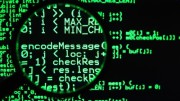Authorities in South Korea are questioning around 40 people over Internet postings said to be in support of North Korea, according to several local news reports.
(Update: The Dong-a-Ilbo reports around 70 are under criminal probe on suspicion of circulating materials praising North Korea online in violation of the National Security Law.)
The material was posted on personal websites and the now defunct “Cyber Command for National Defense” website, according to Yonhap. The site, which was shutdown late last year, had about 6,500 members of whom about 600 were judged to be at its core, according to previous estimates.
Last week police confiscated the server on which the website ran.
Among the 40 currently under investigation are a first lieutenant from the Korean Air Force, several government employees, a lawyer, a private tutor and a pilot for Korean Air, South Korean media said.
The pilot, who has been identified by his family name “Kim,” was responsible for posting “about 60 articles or video clips that sympathize with the communist regime on his website,” Yonhap said quoting South Korean police. A search of his home revealed “around 10 North Korean books and his computer, which had pro-North materials on it, said Yonhap.
He has been barred from flying by Korean Air “on fear that he would fly northward to defect to the communist country,” said the report.
Posting materials judged to be in support of North Korea could result in a prosecution under South Korea’s National Security Law.
Last week’s raid on the computer server coincided with a pledge by prosecutors to crackdown on Internet material judged to be in support of North Korea. However, the definition of such material is vague.
The Internet has led to much more DPRK-related information being available to the average South Korea and the government appears worried that some of the north’s state propaganda might influence its citizens.
Some worry the actions are an attempt by the current South Korean government to stifle dissent and debate on the North Korean issue and that they endanger freedom of speech.




